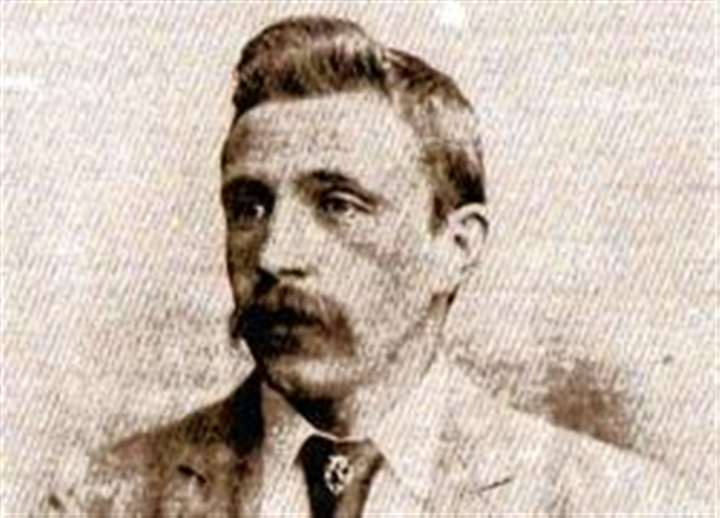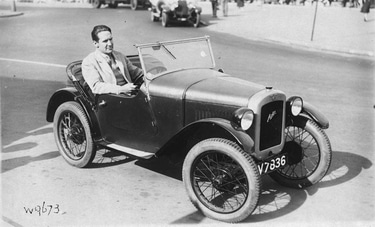In Strath Halladale J M Carpenter got songs from Alex MacDonald [Jack Munroe], an unnamed daughter and two unnamed women [Arridi-ee-di-an, The Bonnie Hoose O Airdrie, The Cruel Mother, The Elphin Knight], and an ‘unnamed man’ [The Dowie Dens O Yarrow] who is surely Alex.
There are recordings of all these in the Carpenter Collection, but frustratingly no transcriptions of the songs have [yet] been found there.
Sandra [Alexandra] Train has kindly shared the following information about the singers, the MacDonald family, and Dalhalvaig.
‘Alexander MacDonald was my grandfather for whom I am called. 1868-1953 His daughter was my father's only sister Margaret. The song Jack Munro was one of my grandfather's songs he often sang, learned from his uncle Colin MacDonald d 1917 from whom he got the croft and the house at Dalhalvaig where we still go. One of the women recorded by Carpenter may have been Chrissie MacKenzie
‘My uncle Colin MacDonald (Alex J the singer’s father) was called for "old" uncle Colin, who was a drover and heard / learned many songs from all over the country, in England and Ireland. Colin was the brother of my father. He had 3 sons, all singers especially Alex J MacDonald (see his songs website at www.alexjmacdonald.co.uk). There are recordings of my uncle Colin in the Kist o' Riches / Tobair An Dualchas. ‘Jack Munro’ is one of them --recorded in 1973 by Alan Bruford, School of Scottish Studies.
‘We still have the old home in Strath Halladale ( Dalhalvaig).Some years ago I wrote a wee book " A Memory of Strath Halladale "-- sure to help if you have insomnia !! I was born in the house in Dalhalvaig Strath Halladale , went to the local school, then to Golspie Secondary then to Edinburgh Uni where I studied French and Latin . I taught in primary schools but mainly in secondary ( St Margaret's Convent School ) . I met Raymond at the Highland Society as students and we married in 1961.'


A young Alexander MacDonald
STRATH HALLADALE, SUTHERLAND
1931 recordings are used courtesy of the James Madison Carpenter Collection, American Folklife Center, Library of Congress.
Here is an article written by Sandra Train in 2019 for the Northern Times.
The Homecoming 1912
Some time in the last decade of the 19th Century, a young man of Halladale, Alexander MacDonald, faced a choice; to stay and work on the croft at Dalhalvaig where he had been brought up from early childhood by his grandparents and an uncle, Colin, or to seek his fortune firth of the Strath. Indeed there was no choice, as with his uncle's marriage in late middle age, Alex no longer felt comfortable in the old home. It may also have been a young man's desire to explore the world beyond the bounds of Duthaich Mhic Aoidh and Caithness that induced him to write to cousins in Canada and Patagonia. From their replies, it appears Alex would have been welcomed by both sets of relatives .His Canadian cousin advised him to come " before the St Lawrence freezes " and " be sure to bring a good dog ". There was even the offer to pay the dog's fare !
As well as these far-flung cousins, Alex had two aunts married in Caithness, one being the mother of the Canadian cousin whose wife was a local Scotscalder girl .He was a regular visit to his aunts' homes and in 1895 he went to stay in Scotscalder , while contemplating his future . It was then that Cupid played his part when Alex met and fell in love with Elizabeth MacDonald, younger sister of his Canadian cousin's wife. Her people were of Gaelic-speaking stock from further south and west, now settled in the Caithness uplands. At this time The Highland Railway Company was widely advertising for men of "good character, physique and health" to apply for jobs as surfacemen, porters and pointsmen.
A decision was made and by October 1895 Alex had applied to the Company to work on the Highland Line . His first job was as surfaceman between Scotscalder and Kildonan in the period from October 1895 to April 1896 when he received a telegram: "You had better go to Inverness by 8am to-morrow to take up your new duties". He was to be porter at Inverness with a weekly pay of 15/-! No doubt, the separation of the young sweethearts by such a distance accelerated their decision to wed. Their marriage took place at Scotscalder on 26th June 1896.
Two years later Alex was sent to Strathpeffer, where he was appointed pointsman at 17/- a week . Of course in both Inverness and Strathpeffer , housing was provided for married employees. It was here that their eldest sons, John, Alistair and Donald, took a life-long interest in engines and trains! Indeed the oldest sons would make their career in the Railway, in Scotland and London. In Strathpeffer two further additions to the family were born, Colin and Margaret. The older children attended school at Fodderty, walking there and back .But soon this settled life style was to change, quite abruptly............
Alex's now elderly uncle Colin in Halladale was widowed and at first, seemed to cope with the croft work and its demands, with the help of a young lad from Melness, later to become a well-known piper. However, it was not long before Colin was pleading in letters to Alex wishing" that you come home and take over the croft". Throughout autumn 1911 these letters became more pressing. A decision to comply with his uncle's wish must have been made in December 1911, as a letter from The Highland Railway Company directed Alex "to go to Boat of Garten , there to take up duties till January 1912, when you will demit your duties ". It cannot easily be imagined what such an upheaval to their lives such a move entailed. But that was as nothing compared with the greater change affecting all their lives when, in mid-January 1912, they at last reached journey's end by rail at Forsinard Station and thence by horse and trap to Dalhalvaig. There would be no more engine-spotting or making pocket-money from the wealthy patrons of the Spa, whose luggage the older boys carried to the local hotels.
Perhaps Alex found the return easier than anticipated. Certainly there was plenty to occupy him on the croft and in the community. Elizabeth was at least nearer her Caithness kin. The older children were now just a short walk from the school, while the eldest found employment first as a pupil- teacher to shepherds' families, then with the Railway Company in Thurso. On 13th February 1914, the croft at 48, Dalhalvaig was assigned by Colin MacDonald to Alex. In the official document of assignation, Colin assigns the holding with stock to Alex which he accepts, recalling that " Uncle had been my guardian from early childhood to manhood".
For Alex had been born in Glasgow, whither his father, John Grant MacDonald, had gone to work in 1866. He had married a widow with a young family and, when he died of typhus in 1870,his widow, Isabella, was prevailed upon to bring young Alex north to his grandparents' home on Halladale .It is thought that he was very young-perhaps not 5 years old when this happened. Isabella had to return to her family in Glasgow; the grandparents wished their son's child to remain in his father's old home , and so it was .Alex was never to see his mother again but Elizabeth went to see her in Glasgow to show her their first-born son, John.
Colin MacDonald died in 1917 -the same year that the youngest of Alex and Elizabeth's children was born, Willie James. Of their 6 children, 3 were to marry into Halladale families. Donald married Minnie Ann Fraser, Trantlebeg, Colin married Jenny Murray, Dalhalvaig and Margaret married William MacKenzie , Trantlemore. Alex and Elizabeth celebrated their Golden Wedding in 1946.Their six children gave them 23 grandchildren, 55 great grandchildren with 4th and 5th generations still arriving! Elizabeth died in 1949, Alex on their anniversary in 1953.
Their third son, Donald, remained as crofter -tenant in Dalhalvaig till his death in 1986.As a faithful diarist he never failed to record the anniversary of their coming to the Strath with these words--" so many years since we came to the Strath". A. E. T.
